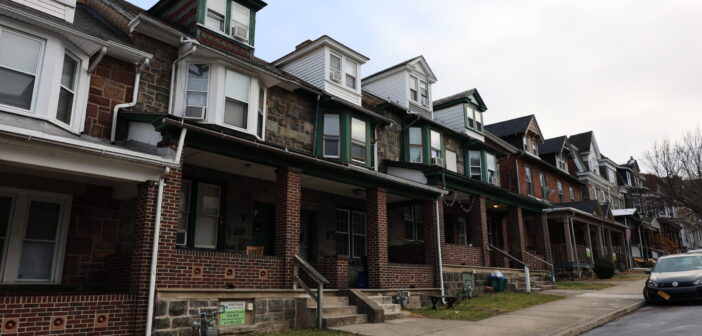Lead contamination has become a growing concern across Bethlehem, with reports highlighting the Bethlehem Area School District’s challenges in protecting children from lead and local homes receiving notifications about potential lead in their pipes.
Children are especially at risk, as even minimal levels of exposure may result in a range of health issues. According to the U.S. Environmental Protection Agency, these effects include damage to the nervous system, learning disabilities, hearing problems and impaired blood cell formation and function.
Environmental advocacy programs are finding that school districts across Pennsylvania are failing to protect children from lead in drinking water, as they are evading reporting requirements and facilitating poor practices.
On Sept. 4, PennEnvironment, a Pennsylvania-based nonprofit environmental advocacy group, released a report stating that Pennsylvania school districts have been non–compliant with lead testing standards. The report documented nine school districts across Pennsylvania, including the Bethlehem Area School District, that were in direct violation of state law.
Since 2002, PennEnvironment has advocated for policies that promote a greener, healthier Pennsylvania. Their September press report highlighted Bethlehem Area School District’s’ shortcomings in protecting children from lead, which aligns with their mission to safeguard the natural world.
Stephanie Wein, a water and conservation advocate, has helped run PennEnvironment’s Clean Water and Conservation programs for over 10 years. She said the issue has gone on for so long because people thought the problem had already been solved.
“People think that it’s a problem of the past, and it’s mostly something that has been solved by previous generations,” Wein said.
Wein’s comments highlight a pressing reality in Bethlehem, where aging pipes and gaps in current legislation have allowed lead contamination in schools and homes to persist, showing the problem is far from resolved.
Act 39 of 2018, the Drinking Water Safety Act, is a Pennsylvania law that encourages schools to test their drinking water for lead. The law mandates action by the school if lead levels exceed the Environmental Protection Agency’s standards.
However, PennEnvironment’s September press release emphasized significant limitations in this state law.
According to Pennsylvania’s Department of Education, schools aren’t required to conduct annual testing for lead levels in drinking water. If a school chooses not to test, it’s only obligated to discuss lead in school facilities at one public meeting per year.
Wein said policy workers recognize that this loophole results in an outdated test-and-treat approach.
“Depending on the pH and the water temperature, you could have more or less lead on the day you sample,” Wein said. “The better practice is just to install lead-certified filters on all the drinking fountains, and then we have that assurance.”
Flora Cardoni, the deputy director at PennEnvironment, urges the Bethlehem Area School District to adopt health-based lead filtration practices to protect children’s well-being. She said the filter-first approach to water installments is a small cost relative to the schools’ budgets.
“There’s a knowledge gap within this dilemma, and periodically testing for lead has become a pervasive issue, yet the solution is affordable,” Cardoni said.
PennEnvironment conducted extensive research despite resistance from some school districts. They used a series of Right-to-Know requests submitted to nine of Pennsylvania’s largest school districts to gain an understanding of the issue.
According to the Pennsylvania Office of Open Records, a Right-to-Know request is an outlet for Pennsylvania citizens to legally access public records withheld by both local and state government agencies.
“PennEnvironment’s press release and conference on Sept. 4 will be a catalyst for change,” Cardoni said.
The concerns raised in the Bethlehem Area School District highlight a broader issue within the city. The possibility of lead in residential water systems has prompted efforts to identify and address potential risks stemming from aging infrastructure and incomplete records.
On Nov. 1, the Bethlehem City Department of Water and Sewer Resources sent a letter to households across the city as part of the Environmental Protection Agency’s directive to notify customers about potential lead service lines.

Bethlehem City Water Department sent the following letter to Bethlehem residents who may have contaminated water on Nov. 1. The letter describes steps to take to reduce potential lead exposure. (Rachel Gruber/B&W Staff)
Edward Boscolo, the director of the Department of Water and Sewer Resources, said that due to the lack of records, many residential homes have unknown pipe materials, which makes it challenging to identify pipes that may contain lead.
“Since a lot of these pipes were installed almost 100 years ago, utility (providers), including Bethlehem, do not have good records of what pipe material was installed at which house,” Boscolo said.
Boscolo said the letter sent to Bethlehem residents was intended to inform them that their home may have a lead service line or that the material of their service line is unknown.
“It’s a heads up to people,” Boscolo said. “We need to identify these lead services. We have to come up with a plan to identify them. We were soliciting (residents’) help to help identify the pipe that is in their house. We also have to come up with a plan to remediate all the lead over a period of 10 years.”
The letter requested residents’ help in identifying the material of the pipes in their homes, which is typically visible in basements. Boscolo said residents were directed to visit the city’s website and enter information about their houses, which the city would then reference.
Boscolo said lead levels in Bethlehem’s water have remained well below the federal limits for decades.
He said this is largely due to the implementation of a corrosion inhibitor after the federal government passed the Lead and Copper Rule in the 1990s, which required water utilities to test for lead levels and implement the use of a corrosion inhibitor in the water supply. A corrosion inhibitor is a chemical that coats the inside of pipes, which prevents lead from leaching into the water supply.
Boscolo said the Environmental Protection Agency aims to identify all areas where lead is present by 2027.
By 2037, the goal is to remove all lead and implement a replacement plan.
This focus on identifying and remediating lead in Bethlehem’s water system parallels broader efforts to address lead contamination in other areas, such as schools.
“Demonstrating these (problems) is already pretty motivational for school districts,” Wein said. “But then doing it in a way that’s like, ‘Come on guys, let’s comply with this flawed law with these gaping loopholes,’ that’s not the best fix.”
Because the lack of local, state and federal laws has led to a normalized attitude toward lead testing, Wein said she wants the media to rally support from members of the Pennsylvania General Assembly to implement a bipartisan bill.
Cardoni said PennEnvironment’s proposed bill is a session law — a statute passed by a legislature during a specific annual, biennial or special session — and is nearing the end of its session.
Wein said if it’s passed before the session ends, all Pennsylvania school districts will be required to replace old drinking fountains that pose a risk of lead contamination.
“That’s the fix — a bill with bipartisan support in both houses of the General Assembly. We support it, the teacher unions support it and it would provide the best protection.”
By filing several Right-to-Know requests, Wein said PennEnvironment has opened the door for Pennsylvania’s Senate to pass additional legislation.
“We can protect kids from a potent neurotoxin in the very place they go to learn and grow with a bill that has bipartisan support in both houses,” Wein said. “The moment is now, and our report shows that the need has never been greater.”






Comment policy
Comments posted to The Brown and White website are reviewed by a moderator before being approved. Incendiary speech or harassing language, including comments targeted at individuals, may be deemed unacceptable and not published. Spam and other soliciting will also be declined.
The Brown and White also reserves the right to not publish entirely anonymous comments.
1 Comment
the water tastes and smells yucky. I’m on Washington Street. something needs to be done now